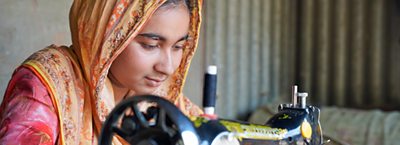More than one million Rohingya people live in camps in Cox’s Bazar, Bangladesh – one of the most concentrated humanitarian emergencies in decades. With so many people in this small area, both the refugees and their host communities face a multitude of challenges, including limited employment prospects, conflict and violence. And young people, especially women and girls, are amongst the most affected.
These young people have spent the majority of their lives in refugee camps, unable to access formal education or work, and governed by societal rules born out of marginalisation and instability. For host communities in Cox’s Bazar, it is difficult for young people, particularly women, to build a future for themselves and their loved ones. Most cannot afford further education and many struggle to find even basic financial stability with secure work.
But through the ���˿��� Media Action’s YouthRISE programme, young women in Cox’s Bazar were given hope by providing them with the life skills and training to set them up for their future.
Through the partnership with the International Rescue Committee (IRC), Shushilan and Young Power in Social Action (YPSA), more than 14,000 young men and women in the host communities were reached with life-skills training and counselling support, so they could become more self-reliant. Through this project we also produced an audio drama, Aaiyo Jani (I Know) to address social and gender norms, including tackling gender-based violence and child marriage.
As the project was funded by USAID, it has now been paused.
Stitching success
For young women like Firoza and Maimuna, the ‘Learn to Lead’ and ‘Learn to Earn’ training sessions run by the YouthRISE program have changed their and their family’s financial status.
and, at just 20, Firoza and her husband found they were no longer able to farm their land effectively, amid frequent and more extreme cyclones, flash flooding, landslides and extreme heat. Despite her husband taking work as a day labourer, the family struggled.
After attending these sessions, Firoza learned to make a Nakshi Kantha, a traditional Bangladeshi hand-stitched blanket that is in high demand in urban areas..
Firoza now gets regular orders, earning 20,000 BDT ($183) in the last three months. As well as contributing to the financial stability of her family, she now wants to pursue entrepreneurship – a lifelong dream.
This year I have spent the amount of money that I have not spent in the last 10 years! I bought toys for my daughter and nephews, bought a saree for myself and for my mother, and bought clothes for my husband and brother. Additionally, I regularly contributed to buy food, and to help bear health and educational expenses of my family. I feel satisfied while doing so,” said Firoza.
Influx of orders
Maimuna, 19, also attended the ‘Learn to Earn’ sessions, and learned tailoring. Having already taught herself to hand-knit a tupi (prayer hat), the sessions provided Maimuna with a sewing machine, which enabled her to fulfil an influx of orders in advance of Eid Ul-Fitr in 2024. She also began teaching other girls in her community, such as Kaniz, her neighbour.
With her new-found earnings and reputation, Maimuna wants to contribute towards her family and invest in her own education, which her family cannot pay for.
My father could not bear the expenses of my education. So, I could only study up to ninth grade. But now I desperately want to resume my studies somehow. I want to attend the secondary school certificate examination and go to college,” said Maimuna.
The work done so far by the YouthRISE program has provided young women and girls in Cox's Bazar with the skills and equipment needed to gain their own financial stability, make a living for themselves and give them new hope in the future. With the help of the sessions provided, the broken dreams of these young women are just beginning to be stitched back together.
Our projects in Bangladesh
-
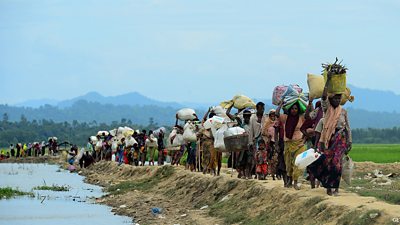
Responding to the Rohingya emergency in Bangladesh
We’re supporting local radio partners to produce a dedicated Lifeline radio programme for Rohingya people and host communities in living in Cox’s Bazar. -
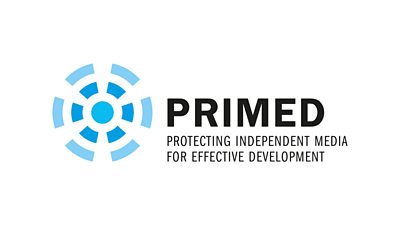
Protecting independent media for effective development
We are working with media support organisations and local partners to find out how best to support public interest media in Sierra Leone, Ethiopia and Bangladesh. -
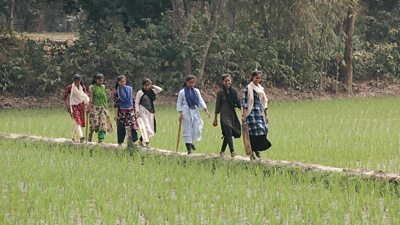
Hello I Am - challenging child marriage in Bangladesh
Watch our films with Rutgers showing how girls are breaking down barriers, in school and on the cricket pitch. -
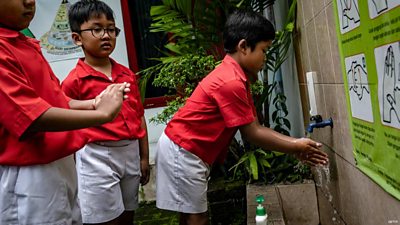
Communication to counter the COVID-19 ‘info-demic’
���˿��� Media Action launches new project in Asia to tackle the spread of mis- and dis-information around COVID-19 (coronavirus) which is as harmful as the disease itself. -
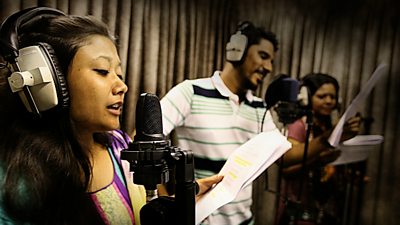
Generation Breakthrough: Using radio to encourage healthy relationships in Bangladesh
Engaging a young people with a range of social and health related topics through a weekly radio show radio Dosh Unisher Mor (Crossroads at 10 to 19). -

Preparing for and responding to disasters in Bangladesh
���˿��� Media Action and its partners are helping the public prepare better for future disasters as well as providing timely, accurate and useful information in times of crisis. -
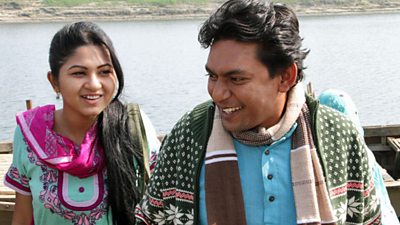
TV drama on maternal and newborn health in Bangladesh
Through a major TV drama series, a radio magazine show, public service announcements and communication skills training for community health workers. -

Debate programme Sanglap
Sanglap (Dialogue), was a political discussion TV show enabling Bangladeshis from all walks of life to question their leaders on the issues that mattered to them.
Search by Tag:
- Tagged with Asia Asia
- Tagged with Bangladesh Bangladesh
- Tagged with Women and girls Women and girls
- Tagged with Gender Gender
